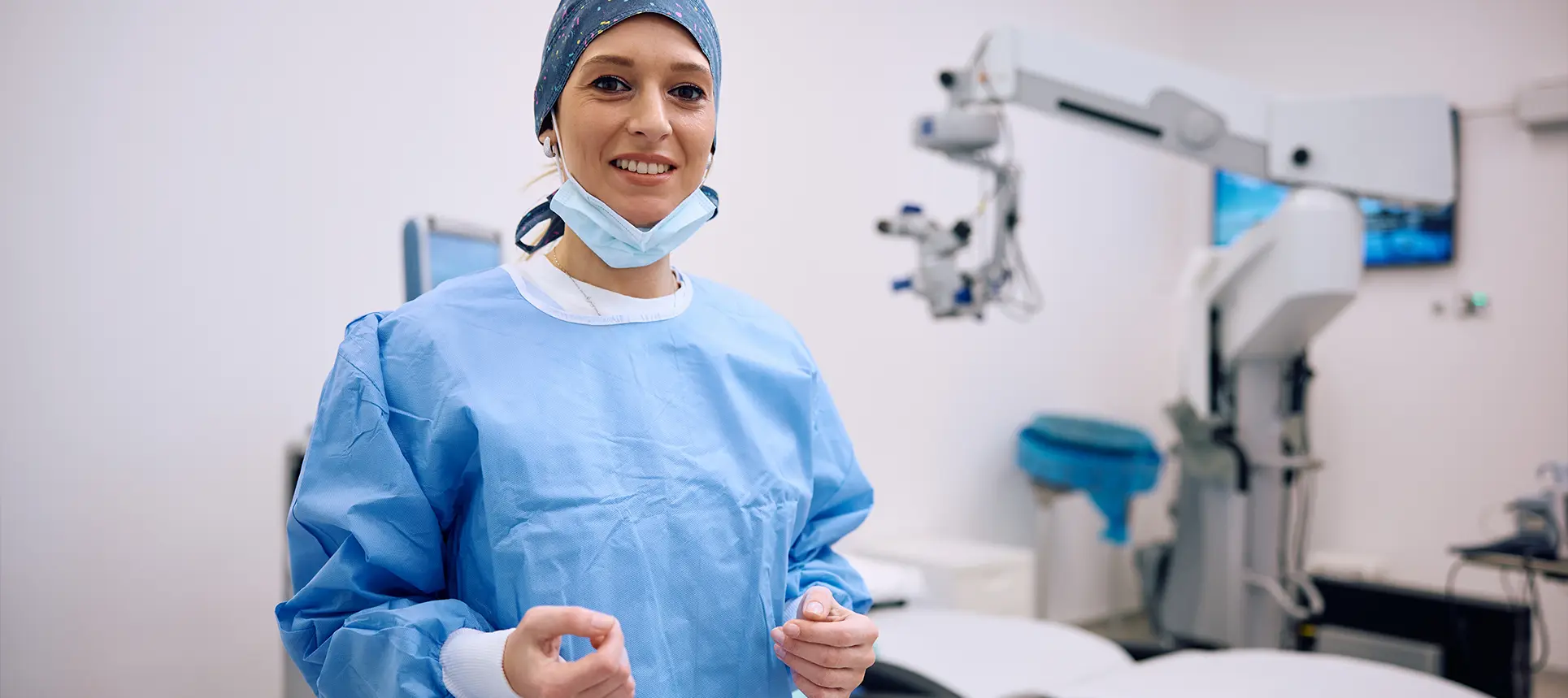When it comes to cataract surgery, patients often have lots of questions — and rightly so. It’s your vision on the line, and it’s only natural to want to understand everything clearly. So let’s go through 20 of the most common questions people ask cataract surgeons, and I’ll explain each one in simple, straightforward language.
1. What exactly is a cataract?
A cataract is when the natural lens in your eye becomes cloudy, making your vision blurry, dull, or even yellowish. It usually happens gradually over time and is most often related to ageing, but it can also develop due to injury, medication use, or certain health conditions like diabetes. You might start to notice it when things look hazy, lights seem too bright, or colours lose their vibrancy.
Think of your eye’s lens like a camera lens. When it’s clear, you get a sharp image. But if that lens clouds up, the image becomes fuzzy — that’s what’s happening inside your eye. The cloudiness prevents light from focusing properly on your retina, which is why your vision deteriorates. It’s not painful, but it can be incredibly frustrating, especially when it interferes with driving or reading.
Most people eventually get cataracts if they live long enough, so it’s nothing to be embarrassed or alarmed about. The good news? Cataract surgery is one of the most commonly performed operations worldwide and has a high success rate. If your vision is affecting your quality of life, it might be time to consider getting it treated.
2. How do I know if I need cataract surgery?
You don’t necessarily need cataract surgery the moment a cataract is diagnosed. Many people live with early-stage cataracts for years without needing any treatment. The decision comes down to how much it’s affecting your day-to-day life. Are you struggling to read street signs, having trouble seeing clearly at night, or finding bright lights bothersome? If yes, then it might be time to have a proper chat with your eye specialist.
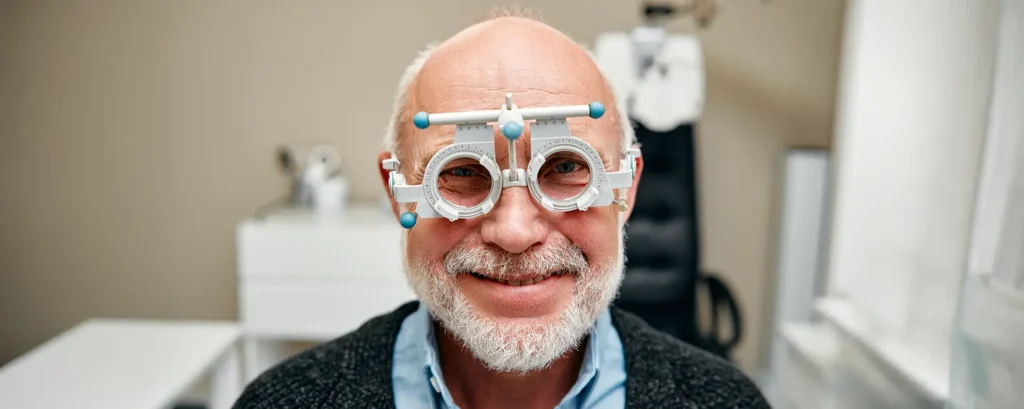
The choice is very personal and doesn’t just rely on medical criteria. Some people may be comfortable adapting to slight changes in their vision with new glasses or brighter lighting at home. Others, especially those who rely heavily on sharp vision for work or hobbies, may choose surgery sooner. There’s no one-size-fits-all answer.
An eye examination will usually include vision tests and looking at the lens inside your eye to see how cloudy it is. Your surgeon won’t just base their recommendation on the cataract’s appearance but also on how it’s impacting your lifestyle. So, it’s a decision you and your doctor will make together based on your specific needs and comfort levels.
3. Is cataract surgery painful?
It’s completely normal to worry about pain, but the truth is cataract surgery is not painful. The procedure is typically done under local anaesthetic, usually with eye drops that numb the surface of your eye. You’ll be awake during the operation, but you shouldn’t feel any pain — just a bit of pressure or cool fluid from time to time.
What you might notice is a bit of light or shadow as the surgeon works, but it’s all very quick and gentle. Most people are surprised by how straightforward and comfortable the whole thing is. If you’re feeling anxious, you might be offered a mild sedative to help you relax. Surgeons and nurses are very experienced in keeping patients calm and comfortable throughout.
Afterwards, your eye may feel slightly gritty or itchy once the anaesthetic wears off, but this is usually mild and settles within a day or two. You’ll be given eye drops to reduce inflammation and prevent infection. Any discomfort is generally manageable with over-the-counter pain relief, although most people don’t need anything at all.
4. How long does the operation take?
Cataract surgery itself usually takes around 10 to 20 minutes. Yes — it’s that quick. While you might spend a bit longer at the clinic to allow for preparation and recovery, the procedure is incredibly efficient. You’re often in and out within a few hours.
What takes the most time is getting you set up and making sure everything is sterile, safe, and ready. Once you’re lying comfortably and your eye is numb, the actual process of removing the cloudy lens and replacing it with an artificial one happens quite quickly. It’s one of the most common surgeries performed, so it’s been refined to be both speedy and effective.
After the operation, you’ll rest for a short while and then head home the same day. There’s no need to stay overnight. Just make sure someone drives you back, as you won’t be able to see clearly enough to get behind the wheel straight away. Most people find the whole experience surprisingly quick and hassle-free.
5. Will I be awake during the procedure?
Yes, you’ll be awake, but don’t let that put you off. You won’t see the instruments or feel anything sharp, and your vision during the surgery will be very blurry due to the anaesthetic and the eye being covered. Many patients describe the experience as a mix of lights and shadows, with no pain at all.
Being awake actually helps the procedure go more smoothly. It means the surgeon can talk to you if needed and make sure your eye stays in the right position. If the idea still makes you uneasy, you can request something to help you relax — like a light sedative. Your comfort is a priority, and the surgical team is very skilled at reassuring nervous patients.
Some people worry they’ll accidentally move their eye or blink, but you don’t need to stress about that. A small device gently keeps your eyelid open, and your eye is numbed so thoroughly that any natural urge to blink is reduced. You’ll be guided through the whole thing, and many people come out saying it was much easier than they expected.
6. What kind of artificial lens will I get?
There are different types of artificial lenses — also called intraocular lenses or IOLs — and the right one for you depends on your lifestyle and vision needs. The most common is a monofocal lens, which gives clear vision at one distance, usually for far away. If you get this type, you may still need glasses for reading or computer work.
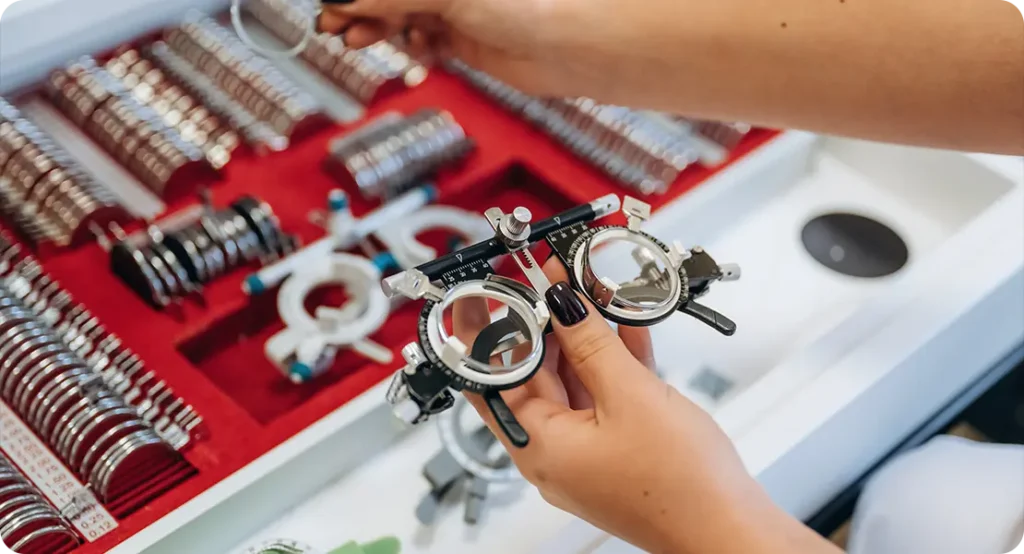
There are also multifocal lenses, which are designed to give you good vision at multiple distances. These can reduce your need for glasses altogether, but they may take a little getting used to, especially in low-light conditions. Another option is the toric lens, which helps correct astigmatism as well as cataracts.
Your surgeon will talk through your daily activities, job, hobbies, and general preferences before recommending a lens. It’s not a one-size-fits-all situation, and choosing the right IOL can really improve your quality of life post-surgery. So make sure you have an open conversation about your expectations — it makes a big difference.
7. How soon will I be able to see clearly after surgery?
Many people notice an improvement in their vision within a day or two after surgery, which can be quite exciting. Colours may look brighter, and everything might appear sharper almost immediately. However, it’s also normal for your vision to be a bit blurry or foggy at first as your eye heals and adjusts to the new lens.
In the first week, things typically improve steadily. You may experience some fluctuations in clarity — one day it’s sharp, the next it’s slightly cloudy — but this is all part of the healing process. Your brain also needs time to adapt to the new way your eye processes light, especially if you’ve had a multifocal or toric lens implanted.
Full recovery and the final result can take up to four to six weeks, though most people return to their normal routines well before that. Your follow-up appointments will help monitor your progress, and if there’s anything unexpected, your surgeon can address it quickly. So while you’ll likely notice an early boost in vision, give it time to settle properly.
8. Are there any risks involved with cataract surgery?
Like any surgical procedure, cataract surgery does carry some risks, but they’re relatively low. The most common complications are minor and treatable — things like inflammation, increased eye pressure, or temporary blurry vision. Serious complications such as infection or retinal detachment are rare, but they can happen.
The good news is that modern cataract surgery is extremely safe, especially when done by an experienced surgeon. Pre-operative assessments are thorough, and you’re closely monitored during and after the procedure. If there are any early signs of problems, they can usually be managed quickly with medication or further treatment.

It’s important to attend your follow-up appointments and to follow the aftercare instructions carefully. Using the prescribed eye drops, avoiding rubbing your eye, and steering clear of heavy lifting or swimming for a while can help prevent complications. If anything feels off or you’re worried after surgery, don’t hesitate to get in touch with your clinic.
9. How many cataract surgeries have you performed?
This is a question every cataract surgeon hears often — and it’s a perfectly fair one. When you’re putting your vision in someone’s hands, you want to know they’ve got experience. Most cataract surgeons will have performed hundreds, if not thousands, of procedures over the course of their careers. It’s one of the most commonly done surgeries worldwide, so experienced surgeons typically carry out many each month.
Asking this question also gives you an idea of their familiarity with different lens types, complex cases, and any complications they’ve managed. Some surgeons specialise in patients with additional eye conditions like glaucoma or macular degeneration, so it’s worth understanding if they’ve handled similar cases to yours. Comfort with advanced techniques, like laser-assisted cataract surgery or toric lenses, can also vary between surgeons.
You’ll usually find that reputable cataract surgeons are very transparent and even proud of their track record. Don’t be afraid to ask for specifics. Experience breeds confidence — both for the surgeon and for you as the patient. It’s completely reasonable to want to know how seasoned your surgeon is before you go ahead.
10. What makes your surgical approach different?
Every cataract surgeon has their own style and preferences when it comes to performing the procedure. Some might use traditional techniques with a scalpel, while others prefer femtosecond laser-assisted surgery, which adds another level of precision. It’s useful to know how your surgeon approaches things and why they choose the methods they do.
You might find they use specific technology to map the eye in detail beforehand or have preferences when it comes to the brands or types of lenses they implant. These small details can make a difference in outcomes — particularly for people who have complex prescriptions or specific lifestyle needs. The way they handle aftercare and follow-ups might also set them apart.
Asking this question gives you insight into their thought process and what kind of personal attention you can expect. A good surgeon will explain not just what they do, but why they do it that way. It builds trust, and it also helps you feel more informed and confident about the whole process.
11. Do you personalise the lens choice for each patient?
A skilled cataract surgeon won’t take a one-size-fits-all approach to lens selection. They’ll want to understand your lifestyle, visual needs, and any underlying eye issues before recommending a particular lens. Whether you read a lot, drive at night frequently, or use screens all day — these are all factors that influence the decision.
Surgeons often use detailed measurements and scans to work out which lens type and power will suit you best. But just as important is the conversation they have with you. You might prioritise distance vision and be happy to use reading glasses, or perhaps you’d prefer the freedom of a multifocal lens. A good surgeon will walk you through the pros and cons without pushing a specific option.
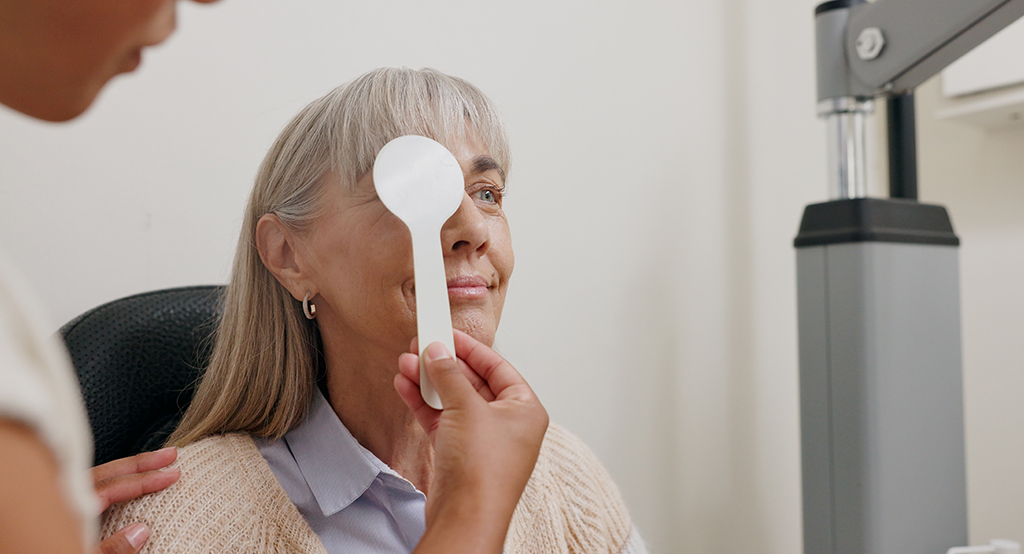
This level of personalisation is a key part of modern cataract care. It’s no longer just about restoring vision — it’s about optimising it to suit your lifestyle. So when you’re speaking with your surgeon, don’t hesitate to ask how they tailor the lens choice specifically to you.
12. What if I have other eye conditions as well?
Cataract surgeons regularly treat patients who have other eye issues, like glaucoma, macular degeneration, or diabetic eye disease. If you’ve got more than one condition, your surgeon will factor that into every stage of your treatment — from the type of lens chosen to how the surgery is performed and monitored.
In some cases, having another eye condition might mean the outcome of cataract surgery is a bit less predictable. That doesn’t mean it’s not worth doing — in fact, clearing the cataract often helps your surgeon better assess and manage the other condition too. But it’s important your surgeon is experienced in dealing with more complex eyes.
This is why it’s vital to ask your surgeon how they’ll adapt their approach based on your full eye health picture. You want someone who’s not just technically proficient but also understands how to navigate the overlap of different issues. The best outcomes come from having a personalised, well-informed plan — and that’s what a good cataract surgeon should offer.
13. Will you be the one performing my surgery?
It might seem like a silly question, but it’s actually a very important one. In some hospitals or clinics, especially teaching environments, more junior surgeons or trainees might perform parts of the operation under supervision. So it’s completely fair to ask who exactly will be doing the surgery.
If you’re paying privately or having the surgery done at a specific clinic, you’ll usually be operated on by the named consultant. But it’s always worth confirming. You might also want to know whether the same surgeon who assessed you will also be following up with you afterwards — continuity of care can make a big difference to your experience.
This question also helps establish trust. Knowing the person who’ll be holding the instruments and making key decisions during your procedure is incredibly reassuring. If it’s not the same surgeon from your consultation, don’t be afraid to ask for a meeting beforehand — it’s your right as a patient.
14. What’s your complication rate?
Surgeons are used to this question, and they respect it. A low complication rate is a sign of a skilled and careful surgeon — but keep in mind that no one has a perfect score, and some complications are unpredictable. What matters is how the surgeon explains the risks and how they handle any issues if they arise.
A reputable surgeon will be honest about their results and the steps they take to minimise problems. They may also participate in regular audits or quality assessments, especially in the NHS or at accredited private clinics. If you’re told a complication rate, don’t hesitate to ask how that compares with national averages — transparency is key.
You’re not trying to catch anyone out — you just want to understand the level of care you’re getting. And asking this question shows you’re an informed patient who wants to engage in the process — something good surgeons really appreciate.
15. What happens if something goes wrong during surgery?
This is a smart question to ask your cataract surgeon because, while complications are rare, it’s good to know what the plan is if something unexpected does happen. Experienced surgeons have dealt with a range of situations and know how to adapt quickly. Whether it’s a small tear in the lens capsule or unexpected bleeding, there are protocols and techniques to handle it safely.
The key is preparation. Your surgeon will have assessed your eyes carefully before surgery to reduce any surprises. But if anything does arise during the procedure, having someone with years of experience means they’re more likely to handle it smoothly and keep your recovery on track. Sometimes, this might mean switching to a slightly different type of lens or adjusting the post-op plan — all things a seasoned cataract surgeon is trained to manage.
Don’t be afraid to ask your surgeon exactly how they respond in those rare moments when things deviate from the plan. It’s not about scaring yourself — it’s about feeling reassured that you’re in good hands, even if a challenge arises. Knowing that your surgeon has a backup plan is incredibly calming.
16. How do you decide when to operate on a cataract?
Not all cataracts need surgery straight away, and your surgeon’s decision is based on a mix of medical assessment and personal impact. If the cataract is affecting your day-to-day activities — like driving, reading, or recognising faces — that’s usually a strong reason to go ahead. But your surgeon will also check how much the cataract is progressing and how it’s affecting the health of the eye overall.

A good cataract surgeon won’t rush you into surgery just because a cataract is there. They’ll talk through your lifestyle and needs, explain how much the cataract is interfering with your vision, and give you an honest sense of when surgery will really make a difference. Sometimes, patients opt to wait — and that’s totally fine if the vision is still manageable.
What makes a difference is having a surgeon who sees you as a person, not just an eye. They’ll weigh the clinical picture against your individual goals — whether that’s reading without glasses or getting back to photography. That’s why this question matters: it tells you if your surgeon is listening and tailoring the decision to you.
17. Will I still need glasses after surgery?
This is one of the most common questions patients ask, and the answer really depends on the type of lens your surgeon chooses with you. A standard monofocal lens is set to give you clear vision at one distance — usually far — so you’ll still need reading glasses. But if you opt for a multifocal or extended depth-of-focus lens, you might reduce or even eliminate the need for specs altogether.
Your surgeon will go through all this with you, including the benefits and trade-offs. Some lenses that give you more freedom from glasses can cause glare or halos at night, so it’s about finding the right balance for your lifestyle. If you have astigmatism, your surgeon might recommend a toric lens to correct that at the same time, improving your overall vision.
So yes — your need for glasses depends on the choices you and your surgeon make together. That’s why it’s important to be open about your expectations. A good cataract surgeon will listen to what you want, explain what’s realistic, and help you get as close as possible to your ideal outcome.
18. How do you ensure the lens power is accurate?
Cataract surgeons rely on a series of precise measurements to calculate the power of the new lens that goes in during surgery. This includes using devices to measure the length of your eye and the curvature of your cornea. It’s a bit like tailoring a suit — the more exact the measurements, the better the fit.
But even with advanced technology, there’s still a small margin of variability. Some surgeons go further by using multiple measurement devices or taking repeat scans to double-check the numbers. Others use formulas that are adjusted for certain eye shapes or previous surgeries like LASIK, which can make things trickier to calculate.
What you want to hear from your surgeon is that they’ve got a careful, methodical approach to lens power calculation — not just a one-scan-and-done attitude. Ask them how they choose the lens strength, especially if your prescription is complex. An experienced surgeon will be more than happy to explain how they ensure the best possible accuracy for your new vision.
19. What kind of follow-up do you provide after surgery?
Follow-up care is just as important as the surgery itself. A responsible cataract surgeon won’t just do the operation and wave goodbye. You’ll normally be seen the next day or within a few days to check the eye is healing well, and then again a few weeks later to assess your vision and make sure everything’s settled properly.
Some surgeons or clinics offer extra follow-ups, especially if you’ve had a premium lens, complex eye anatomy, or additional eye conditions. Others may have optometrists who handle some of the aftercare under the surgeon’s supervision. Either way, the best surgeons stay involved and accessible if any concerns crop up during recovery.
It’s absolutely worth asking how the follow-up is structured and who you’ll be seeing. If something doesn’t feel right, you’ll want to know you can reach your surgeon or their team quickly. The reassurance that they’ll be keeping an eye on you — literally — is something every patient deserves.
20. Why should I choose you as my cataract surgeon?
It might feel like a bold question, but don’t hold back — this is your eyesight we’re talking about. Asking your surgeon why they are the right person to operate on your eyes puts everything into focus. It gives them the chance to tell you about their experience, approach to care, and what sets them apart from others.
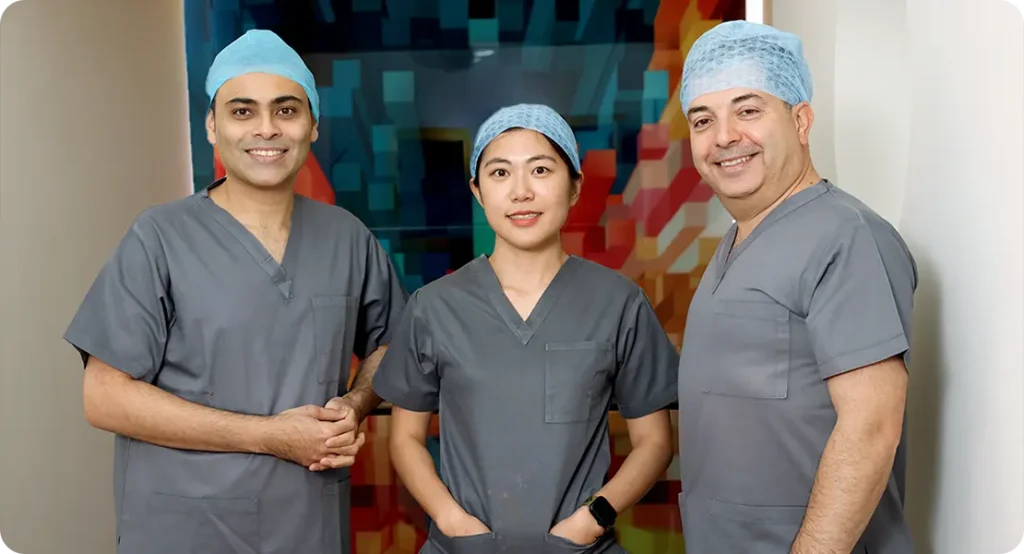
A good cataract surgeon won’t be offended. They’ll likely be glad you asked. They might mention their track record, patient satisfaction scores, use of advanced technology, or their particular strength in handling complex cases. More importantly, you’ll get a feel for how they communicate — whether they take the time to explain things properly and show real care.
Ultimately, choosing a cataract surgeon is about trust. You want someone who’s not only skilled with their hands but who listens, reassures, and takes your concerns seriously. That’s why this question matters. You’re looking for a partner in your eye health — and a confident, compassionate answer can help make your decision that much easier.
Final Thoughts
Cataract surgery may be one of the most commonly performed procedures in the world, but that doesn’t mean it’s a small decision. It’s perfectly normal to have questions — and as you’ve seen, cataract surgeons are asked a wide range of them every single day. The more informed you are, the more confident and comfortable you’ll feel throughout the process.
Whether you’re just starting to notice changes in your vision or you’ve already been told you have cataracts, understanding the role of your surgeon and what to expect can make all the difference. Choosing the right specialist is not just about skill, but also about trust, communication, and a tailored approach to your unique needs.
If you’re concerned about cataracts and would like to speak with an experienced consultant, you can contact us at the London Cataract Centre to book a private consultation with one of our expert surgeons. We’re here to guide you every step of the way, from initial assessment through to clear, confident vision after surgery.

